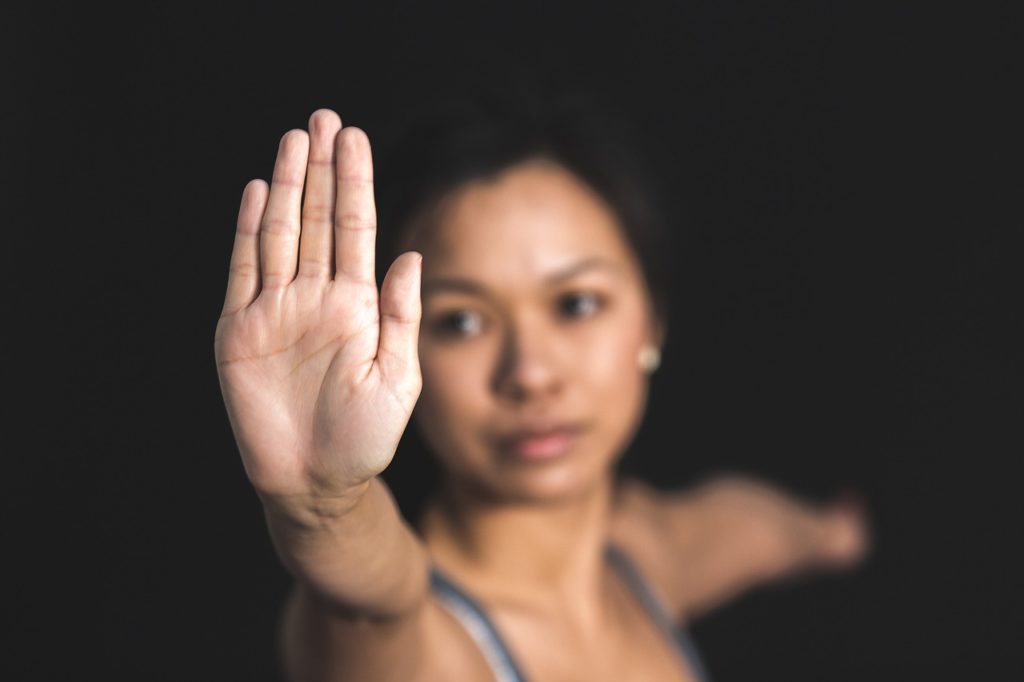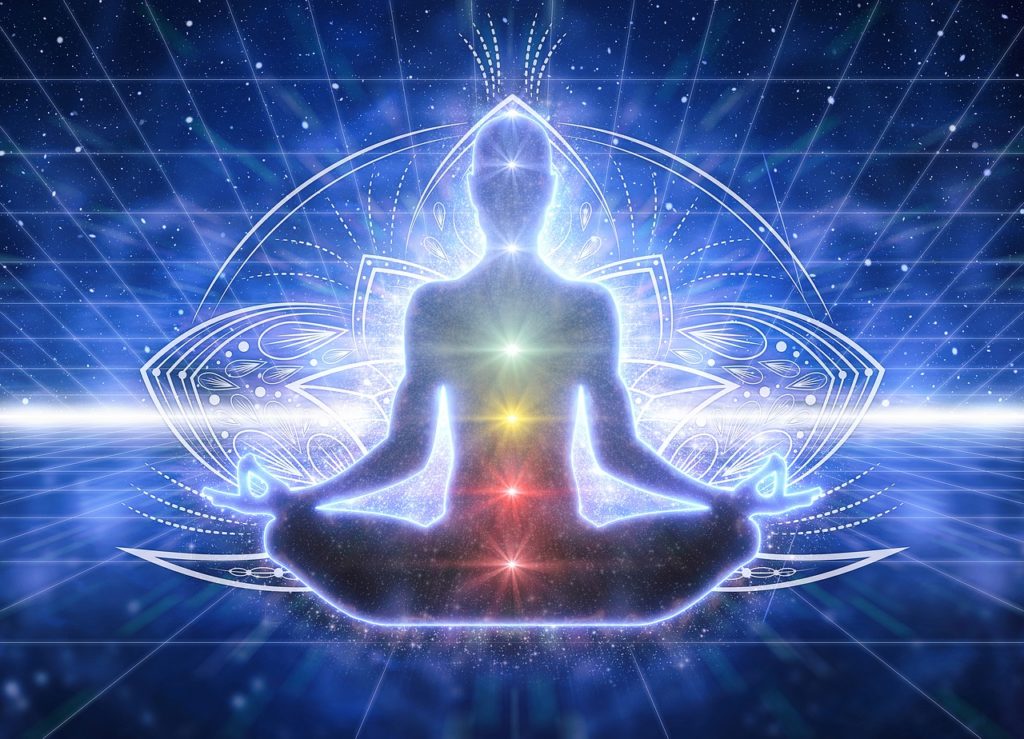In the past two blog posts, we looked at a couple of the ethical precepts in the yoga philosophy. The first was non-stealing (asteya) and the second was non-violence (ahimsa).
These precepts are known as yamas and they address the way we treat ourselves and others. (It turns out that the way we treat ourselves is usually the way we treat others. No big surprise there.)

This post will explore the fourth yama, brahmacharya. This is probably the most widely misunderstood of the five. So to keep it simple, we’ll look at mostly in the context of lessening dependencies and cravings.
What Exactly Is Brahmacharya?
If you poke around in yoga circles, you’ll find that many people believe that brahmacharya means chastity or continence. There is often a sexual (or lack thereof) component to it.
Traditionally, those on the Yogic path were advised to conserve their sexual energy and redirect it to their practice instead. The belief being they could further progress along that path.
Today, most agree that this is a rather archaic translation. Yes, there is a component of conserving one’s sexual energy so it can be harnessed and transformed into more productive energy. But that doesn’t embrace the full essence of this yama.
The literal translation is “walking in God-consciousness.” But that’s a little lofty, right? And not everyone identifies with that terminology.
So in the simplest terms, you could translate this yama to mean “balancing and supervising everything that comes in through your five senses.” The big question being, therefore, how much of your life is dictated by seeking sensual pleasures?
And this is where moderation comes into play.
Practicing Moderation for Lessening Dependencies and Cravings
You might be wondering why we’re discussing moderation at a time like this. Namely, the holidays. After all, isn’t this a time to kick back and indulge?

Sure. To some extent. As the old joke quips, “Practice everything in moderation. Including moderation.”
Brahmacharya isn’t a task master demanding you turn away from all sensory pleasures. It, like all of the other yamas, asks you to simply cultivate awareness of your behaviors, motivations, and patterns. In this case, it encourages “right use of energy.”
And entering into the holidays after this very difficult year in the midst of a pandemic, sensory pleasures may feel like the only thing we have. But they’re not solutions. They’re simply short-term relief.
If you want a more long-term solution, it starts with awareness of how you’re utilizing energy.
The Importance of Right Use of Energy
It’s hard to deny that all of the changes and disruptions in our lives have left many of us in a state of nearly constant busyness. We hit the ground running each morning, and don’t stop until our heads land on the pillow.
There’s even some sort of imagined merit in this. As though the only way ‘to be’ is ‘to be constantly busy.’ If we aren’t always in a state of ‘doing,’ then we cease to exist. And this is a surefire recipe for burn-out. Not to mention how devastating it can be on your immune system.
Filling your schedule to the brim may seem impressive. And yes, there are necessary tasks you must complete. Those are non-negotiable. But just how much of the other activity is draining your vitality?
When we feel frazzled, exhausted, and in an endless loop, it’s much easier to fall prey to dependencies and cravings. Having that fifth cup of coffee or king-size chocolate bar will power us get everything done, right? Or, on a more extreme level, we may turn to alcohol, drugs, or risky behaviors to fill the void we’ve created in our constant busyness.
Right use of energy encourages you to slow down, stop, and come to your breath. This gives your brain and your body a break to recharge. It also gives you pause to check in with how you’re feeling both physically and energetically.
Where to Begin?
Practicing right use of energy doesn’t require a huge and immediate overhaul. In fact, this is rarely effective. The key is to start small. In other words, don’t bite off more than you can chew.

Start by being conscious about what you eat and whether it helps or hurts your body. Your food choices energetically affect not just your physical health, but your mental health as well.
Also, pay attention to the books and magazines you read and the movies, television, and social media to which you expose yourself. An hour on Facebook, for example, could be a serious drain on your energetic resources.
Also, consider activities that bring you the most joy, fulfillment, and satisfaction. How often do you engage in these? How frequently do you set them aside to take care of something else? Understanding not just what you’re doing every day, but how you’re doing it and how it affects you are key in utilizing energy more effectively.
Certified life coaches who work with folks in this situation may begin by asking their clients to make a list of the people who drag down their energy, and another list of those who give them a boost.
The coach and client would then formulate a plan whereby the client would incrementally pull away from the energy-drainers, and institute ways to benefit from those who bring light in their lives.
Right use of energy requires turning the mind inward to balance and supervise your senses so they don’t take the reins. This, in turn, will help you conserve energy and keep your mind focused.
When the mind no longer dominated by senses and sensual pleasures, it’s easier to access the peace within.
How Could Right Use of Energy Help You?

We could all benefit from more stillness and lessening dependencies and cravings. But implementing the practice of right use of energy into everyday life can be tough.
So contact us today for help.
We will provide your company, organization, or school with life coaching and mindfulness meditation/yoga services. And our offerings are available onsite or virtually to meet your needs.



